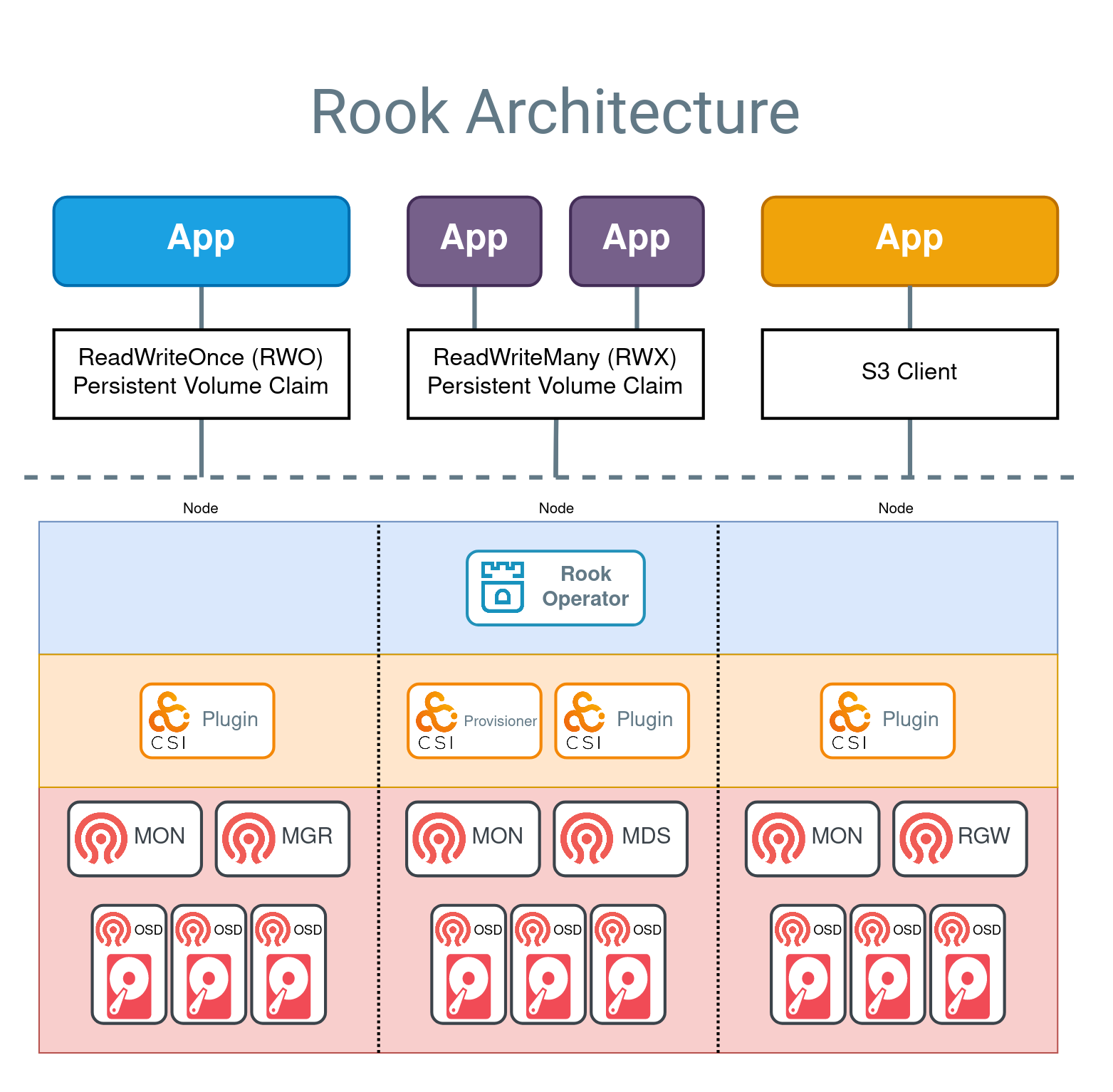Storage Architecture

You can read more here.
Rook uses a distributed and modular storage architecture to provide robust storage solutions within Kubernetes:
-
Ceph OSD (Object Storage Daemon):
- The Ceph OSD is a critical component in Rook's architecture. It manages the storage devices or partitions attached to each worker node in the cluster.
- OSDs are responsible for data storage, replication, recovery, and balancing within the Ceph storage cluster.
- Rook leverages Ceph OSDs to provide scalable and distributed storage resources to applications running in the Kubernetes cluster.
-
Ceph MON (Monitor):
- The Ceph MON is responsible for maintaining the overall health and status of the Ceph storage cluster.
- MONs store the cluster's metadata, monitor cluster membership changes, and participate in leader election.
- Rook utilizes Ceph MONs to provide monitoring, management, and coordination for the Ceph storage cluster.
-
Ceph MGR (Manager):
- The Ceph MGR acts as the central management and monitoring daemon within the Ceph storage cluster.
- MGRs handle cluster-wide tasks, performance monitoring, and provide a RESTful API endpoint for external interactions.
- Rook utilizes Ceph MGRs to facilitate management, monitoring, and control plane operations for the storage cluster.
-
Ceph MDS (Metadata Server):
- The Ceph MDS is responsible for handling metadata operations in a Ceph file system (CephFS).
- MDS servers maintain file system metadata, handle file directory operations, and ensure data consistency.
- Rook utilizes Ceph MDS to enable the deployment of scalable and distributed file systems within the Kubernetes cluster, offering features such as POSIX semantics and dynamic provisioning of file storage.
-
CSI (Container Storage Interface):
- Rook integrates with the Kubernetes CSI framework to provide storage orchestration and dynamic provisioning for persistent volumes.
- The Rook CSI driver allows Kubernetes workloads to consume storage resources provisioned by Rook.
- It enables seamless integration with various storage backends, allowing Rook to support different storage technologies, including Ceph, EdgeFS, NFS, and more.
-
Rook Operator:
- The Rook Operator is a Kubernetes operator responsible for managing the lifecycle of Rook storage components.
- It handles the deployment, scaling, upgrading, and monitoring of the Rook storage cluster.
- The Rook Operator ensures that the desired state of the storage cluster is maintained and handles automated tasks, such as creating OSDs and managing Ceph configuration.